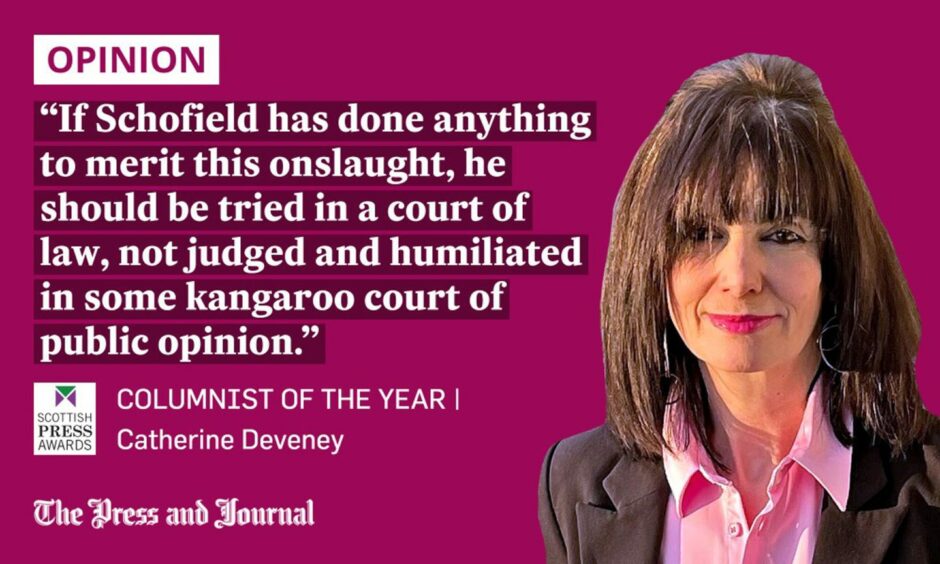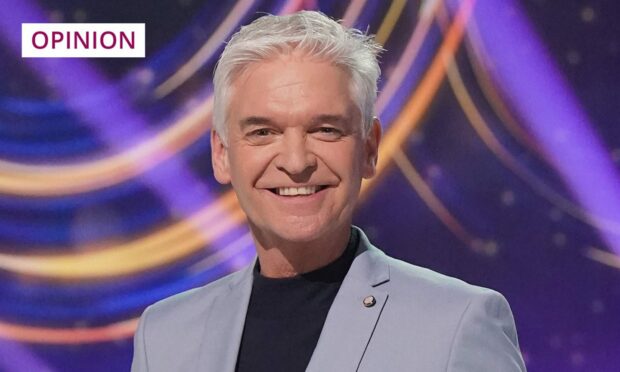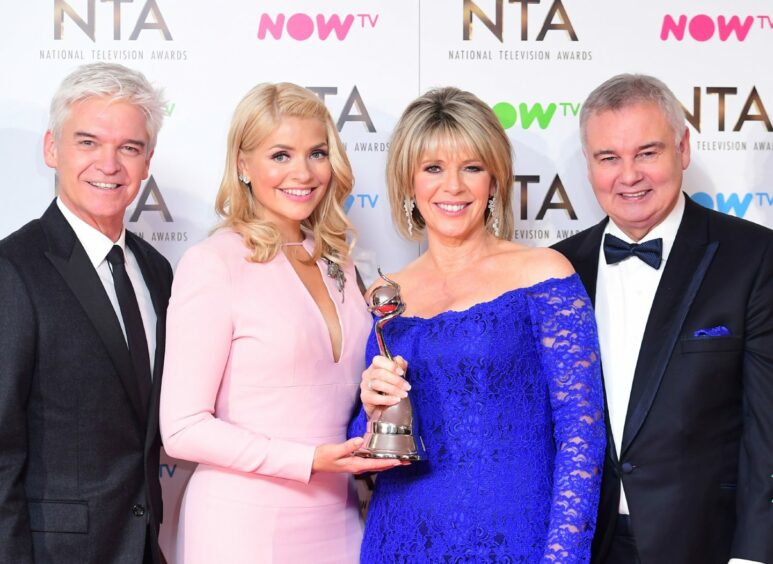When confronted by wildlife videos in which some hapless animal – perhaps powerful in its own kingdom – gets surrounded by predators, I look away before the kill.
A useful picture to keep in mind when considering the Phillip Schofield affair. Not only has the relentlessness been unedifying, but we reached the pinnacle of ridiculousness when his “consensual and legal” affair topped ITV’s news agenda, becoming literally the lead item after the 10 o’clock boings.
While Boris Johnson dodged public accountability over his WhatsApp messages, the media reckoned Schofield deserved more scrutiny than a rogue ex-Prime Minister.
What’s going on?
There are issues to address that are now bigger than Schofield himself. Firstly, there’s a shocking disparity between our words about mental health and our actions.
Our national mental health strategy gives parity to mental and physical health, with large sums of public money being spent on mental health awareness.
We now – largely – talk a good game. Yet, we still do not translate that abstract policy to concrete situations.
What has happened to Phillip Schofield is not public accountability. It’s public annihilation.

Watching his mental distress feels uncomfortably like the adult equivalent of a playground fight, the pack gathering in glee shouting, “Fight, fight, fight!” Except children are more honest in their prurience, while adults have a misplaced self-righteousness.
Here’s the bottom line: if Schofield has done anything to merit this onslaught, he should be tried in a court of law, not judged and humiliated in some kangaroo court of public opinion.
Then there’s our confused attitude to power. As a journalist, the issue I have written most about over the years is abuse, particularly in religious settings.
It fires me up because I have witnessed personally the broken adults that abused children so often grow into.
They are fruits that wither on the vine. Their lives are blighted by physical, social, psychological and sexual difficulties and those dealing with victims will, at some point, receive tragic messages about premature deaths and suicides.
It does not help to bandy the word abuse about without certainty it applies
So, I care about abuse. I care passionately about it. But it does not help to bandy the words ‘abuse’ and ‘grooming’ about without certainty that they apply.
Schofield described his relationship with a 20-year-old male runner as “unwise”. I can only agree. Why would someone approaching 60 want a relationship with a 20-year-old?
What on earth would you talk about? Your botox treatment? But if it’s consensual, that’s their business, and anyway, if 20-year-olds are so vulnerable, why are we letting 16-year-olds marry?
The worst accusation seems to be that Schofield’s relationship was an abuse of power by an older TV presenter towards a starry-eyed newcomer. Is that true? Maybe.
But it’s important to recognise that many things make you vulnerable at different stages of life.
Age is only one factor and an older adult is not necessarily less vulnerable than a younger one.
There also seems to be more than a whiff of homophobia here.
I await with interest, for instance, soul-searching interviews with 79-year-old acting legend, Robert de Niro, who has just had a baby with a much younger woman he met on a film set, or 83-year-old Al Pacino who has just had a baby with 29-year-old film producer, Noor Alfallah, an ex-squeeze of Mick Jagger. (Where does Noor look for her partners? The lonely hearts column of Saga magazine?)
The thing that always infuriates me when writing about abuse is the icy response of powerful organisations which protect themselves rather than their victims.
ITV has been criticised in the past for failures to protect stars
ITV has been criticised in the past for failures to protect both insiders like Caroline Flack, and reality TV contestants.
This week, executives faced a parliamentary committee about safeguarding. How much of their attitude to Schofield was driven by that forthcoming appearance, rather than the welfare of those at the heart of this story?
Schofield’s biggest crime appears to be lying. Unseemly and unpleasant for sure, but a distinction should be made here.
His lie did not conceal a crime. Nor did it advance his situation or feather his nest. It was about privacy and protection. The people who have the most cause to be angry and hurt about that lie – his wife and family – have stood by him. His “friends”, less so.
Who knew that Apple TV’s series, “The Morning Show”, was quite so accurate?
The Schofield affair played out that fictional narrative almost to the letter. Ambition, power, jealousy, schadenfreude…it’s all been there.
I have no idea if Schofield is as toxic as some claim, but Eamon Holmes sank his gargantuan boots in, claiming to be speaking, “for those without a voice”.
He illustrated perfectly how to make yourself look more viciously unpleasant than the person being criticised.
If you can’t speak when it’s difficult to do so, don’t become brave because the crowd is at your back. More to come? I think we have already seen more of Phillip Schofield’s entrails than necessary. Enough now, surely.
Catherine Deveney is an award-winning investigative journalist, novelist, television presenter and Scottish Newspaper Columnist of the Year 2022.


Conversation